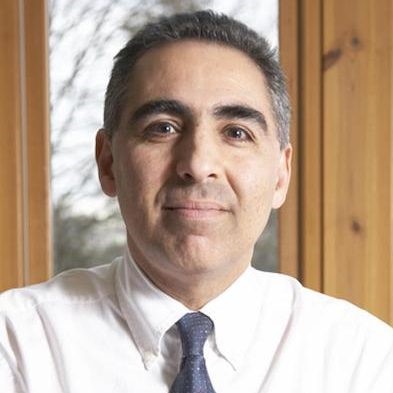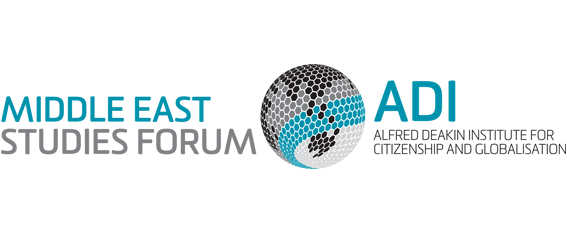Professor Anoush Ehteshami
Professor Anoush Ehteshami is Professor of International Relations in the School of Government and International Affairs, Durham University. He is the Nasser al-Mohammad al-Sabah Chair in International Relations and Director of the HH Sheikh Nasser al-Mohammad al-Sabah Programme in International Relations, Regional Politics and Security. He is, further, Director of the Institute for Middle Eastern & Islamic Studies (IMEIS) at Durham, one of the oldest and noted centres of excellence in Middle Eastern studies in Europe. He acts as Co-director (2016-2021) of the £3.9 million AHRC-funded Open Worlds Initiative entitled Cross-Language Dynamics: Reshaping Community. Previously (2006-2016), he acted as Joint Director of the nationally (RCUK)-funded Durham-Edinburgh-Manchester Universities’ research and training Centre for the Advanced Study of the Arab World (CASAW).
He was Durham University’s first Dean of Internationalization, 2009-2011, and was the founding Head of the School of Government and International Affairs (2004-9). He has been a Fellow of the World Economic Forum, and served as a member of the WEF’s foremost body, the Global Agenda Councils, 2010-12, focusing on energy. He was Vice-President and Chair of Council of the British Society for Middle Eastern Studies (BRISMES) 2000-2003. He is Editor of two major book series on the Middle East and the wider Muslim world, and is member of Editorial Board of seven international journals.
His many book-length publications include:
- How China is Changing the Middle East (with Niv Horesh) (New York, NY: Routledge, 2020), 167pp;
- Iran: Stuck in Transition (New York, NY: Routledge, 2017), 296pp;
- Security and Bilateral Relations between Iran & its Arab Neighbors (co-editor) (New York, NY: Palgrave Macmillan, 2017), 240pp;
- The Emerging Middle East-East Asia Nexus (co-editor) (New York: NY, Routledge, 2015), 192pp;
- The Foreign Policies of Middle East States (co-editor) (Boulder, CO: Lynne Rienner, 2014), 399pp;
- Dynamics of Change in the Persian Gulf: Political Economy, War and Revolution (New York, NY: Routledge, 2013), 292pp;
- Iran and the International System (co-editor) (New York, NY, Routledge, 2012), 224pp;
- The International Politics of the Red Sea (with Emma Murphy) (New York, NY: Routledge, 2011), 265pp;
- Competing Powerbrokers of the Middle East: Iran and Saudi Arabia (Abu Dhabi: Emirates Center for Strategic Studies and Research, 2009), 59pp;
- Reform in the Middle East Oil Monarchies (co-editor) (Reading: Ithaca Press, 2008), 309pp;
- Globalization and Geopolitics in the Middle East: Old Games, New Rules (New York, NY: Routledge, 2007), 258pp;
- Iran and the Rise of its Neoconservatives (with Mahjoob Zweiri) (London: I.B. Tauris, 2007);
- The Middle East’s Relations with Asia and Russia (co-editor) (London: RoutledgeCurzon, 2004), 166pp;
- The Changing Balance of Power in Asia (Abu Dhabi: ECSSR, 1998), 62pp;
- Syria and Iran: Middle Powers in a Penetrated Regional System (with Ray Hinnebusch) (London: Routledge, 1997), 238pp;
- Islamic Fundamentalism (co-editor) (Boulder, CO: Westview Press, 1996), 284pp;
- After Khomeini: The Iranian Second Republic (London: Routledge, 1995), 244pp;
- From the Gulf to Central Asia: Players in the News Great Game (editor) (Exeter: University of Exeter Press, 1994), 242pp;
- Iran and the International Community (co-editor) (London: Routledge, 1991), 191pp;
- Nuclearisation of the Middle East (New York, NY: Brassey’s Defence Publishers, 1989), 197pp.
He also has over 90 articles in learned journals and edited volumes to his name. His current research agenda revolves around five over-arching themes:
- The Asian balance of power in the post-Cold War era.
- The ‘Asianization’ of the international system.
- Foreign and security policies of Middle East states since the end of the Cold War.
- The Arab region in transition: Role of state and non-state actors.
- Good governance in the Middle East.
View Professor Ehteshami full profile on the Durham University
website.


